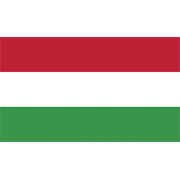Fiscal subject related
Originally, the introduction of SAF-T was set to take place in 2021 but was postponed due to the COVID-19 pandemic. Although no official ‘go-live’ date has been provided yet, there are leaks that suggest that SAF-T may come into force in 2022 or early 2023.
The above dates sound feasible, considering it is already more than two years since the project started. Furthermore, detailed technical documentation on SAF-T HU has already been provided by NAV.
SAF-T Hungary is divided into many structures covering various areas of taxpayer finance and accounting. That is a similar model to the Polish SAF-T (JPK), although SAF-T HU features more different structures. NAV underlines that such a design will simplify the generation of SAF-T files from various sources, such as ERP, warehouse systems, billing systems, etc.
Other news from Hungary
New webinar was uploaded: Recorded webinar: Approaching Hungary’s New E-Cash Register Era
 Hungary
Author: Tara Nedeljković and Ištvan Božoki
Hungary
Author: Tara Nedeljković and Ištvan Božoki
On December 19 2025, Fiscal Solutions organized a free webinar on the topic „Approaching Hungary’s New E-Cash Register Era“ The webinar was held by Tara Nedeljković, Team Lead of Legal Consultants at Fiscal Solutions, and Ištvan Božoki, Technical Consultant at Fiscal Solutions. Read more
Subscribe to get access to the latest news, documents, webinars and educations.
Already subscriber? Login


New event was created: Reminder - Join our free webinar: Approaching Hungary’s New E-Cash Register Era
 Hungary
Author: Tara Nedeljković and Ištvan Božoki
Hungary
Author: Tara Nedeljković and Ištvan Božoki
Step into this in-depth webinar designed for businesses and retailers operating in, or planning to enter the Hungarian market. You’ll discover what the new generation of e-cash registers is expected to introduce, along with the practical implications these changes may have on daily operations, technology planning, and customer interaction as well. 📅 18 December ⏰ 3 PM (CET) What we&rsquo... Read more



E--receipt requirements in Hungary – e-Cash registers in focus
 Hungary
Author: Tara Nedeljković
Hungary
Author: Tara Nedeljković
Recent legislative changes aim to replace mandatory paper receipts with regulated e-receipts, supporting NAV’s broader digitalization strategy while ensuring data security and limited tax-authority visibility. E-receipts must be generated by compliant devices, encrypted, optionally printed only on request, and may be linked to customer services such as loyalty programs only with explicit consent.... Read more



New event was created: Join our free webinar: Approaching Hungary’s New E-Cash Register Era
 Hungary
Author: Tara Nedeljković and Ištvan Božoki
Hungary
Author: Tara Nedeljković and Ištvan Božoki
Step into this in-depth webinar designed for businesses and retailers operating in, or planning to enter the Hungarian market. You’ll discover what the new generation of e-Cash registers is expected to introduce, along with the practical implications these changes may have on daily operations, technology planning, and customer interaction as well. 📅 18 December ⏰ 3 PM (CET) What we&rsquo... Read more



Choosing the Right Printer for the NAV e-Cash Register App in Hungary
 Hungary
Author: Tara Nedeljković
Hungary
Author: Tara Nedeljković
The NAV e-Cash Register app in Hungary supports a wide range of portable printers, but users should choose a device that meets the system’s technical expectations for clean and reliable receipt printing. Read more
Subscribe to get access to the latest news, documents, webinars and educations.
Already subscriber? Login


NAV Issues Detailed Guidance on Licensing Procedures for E-Cash Registers and Customer Apps
 Hungary
Author: Tara Nedeljković
Hungary
Author: Tara Nedeljković
NAV has published a detailed Notice explaining how distributors must apply for and obtain permits to market e-cash registers and customer applications under Decree 8/2025. Let’s explore this further. Read more
Subscribe to get access to the latest news, documents, webinars and educations.
Already subscriber? Login


Hungarian HAV Published E-Cash Register Testing Details
 Hungary
Author: Tara Nedeljković
Hungary
Author: Tara Nedeljković
Hungary’s new e-cash register framework, based on the 8/2025 (III.31.) Ministry of Finance Regulation, introduces strict technical certification rules and NAV-supervised type testing to ensure secure digital receipt issuance and data transmission. Read more
Subscribe to get access to the latest news, documents, webinars and educations.
Already subscriber? Login

